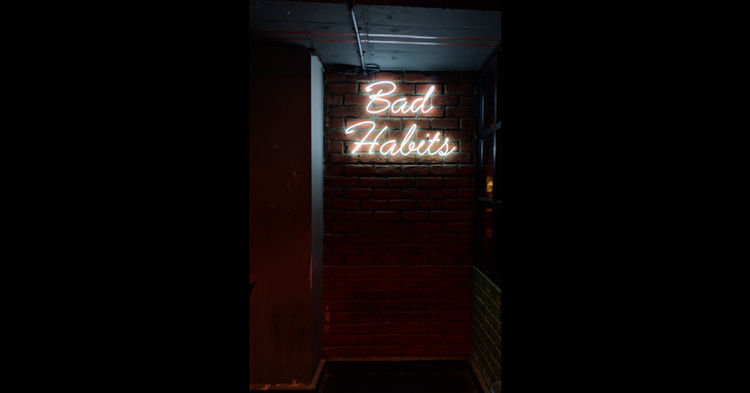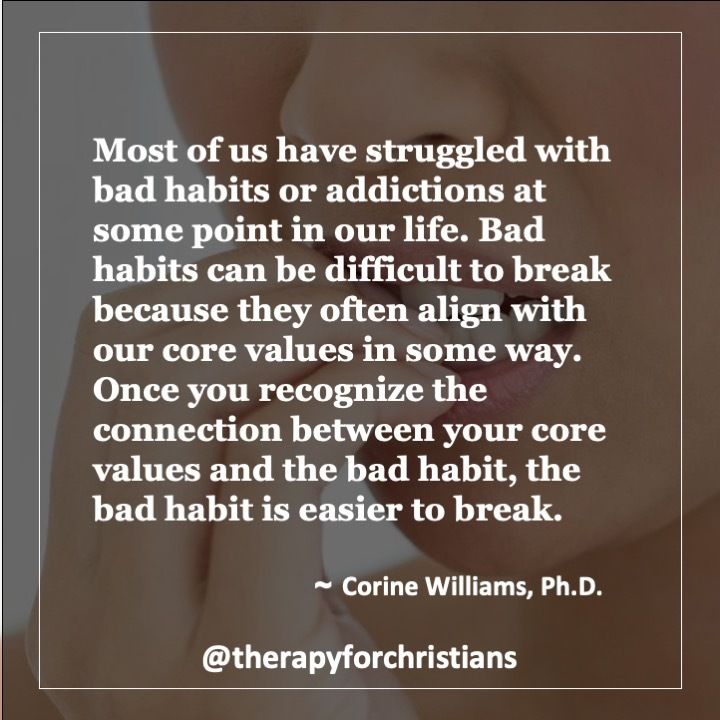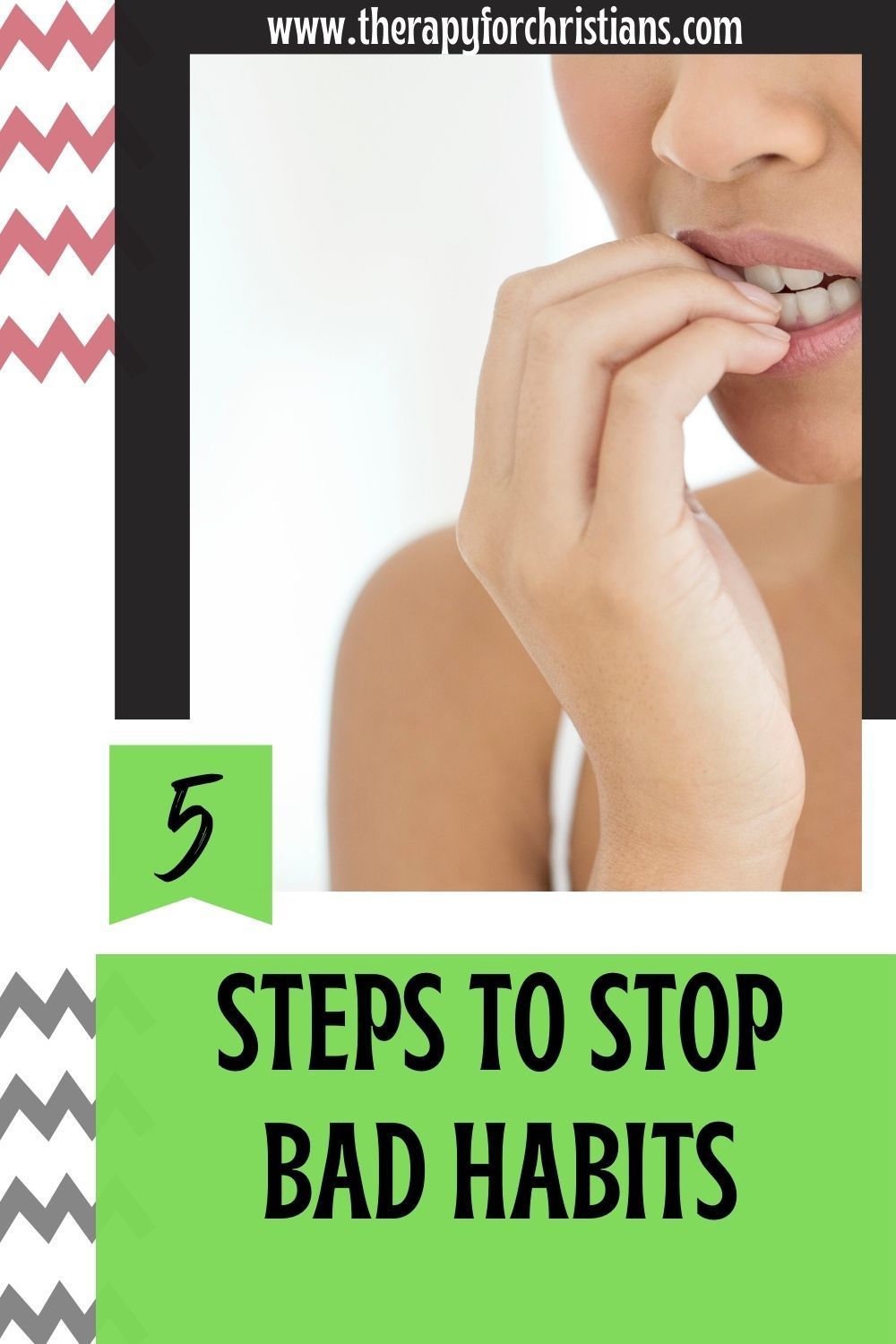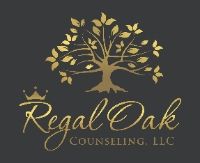
Have you ever been in a situation where you knew what you were doing was not good for you, yet you still struggled to stop? Most of us have, because the truth is, at some point in life bad habits or addiction gets the best of us. It might be because of our sinful nature (Rom 8:6-15), bad company (1 Cor 15:33), or both but once it happens, it is a difficult cycle to break. Difficult, but not impossible.
My goal with this post is to help you break a habit or  Like this content on Facebookaddiction by completing one simple exercise. This exercise can help you overcome any addiction or bad habit, from overeating to drugs. But before we get to the exercise, let's look at the reasons why it's so hard to break the cycle of addiction in the first place. Please note, if you are addicted to a substance such as any drug or alcohol, please seek medical treatment before trying to stop. Detoxing from some drugs and alcohol can cause deadly and adverse side effects.
Like this content on Facebookaddiction by completing one simple exercise. This exercise can help you overcome any addiction or bad habit, from overeating to drugs. But before we get to the exercise, let's look at the reasons why it's so hard to break the cycle of addiction in the first place. Please note, if you are addicted to a substance such as any drug or alcohol, please seek medical treatment before trying to stop. Detoxing from some drugs and alcohol can cause deadly and adverse side effects.
Why is it so Hard to Break a Bad Habit
Based on research by Dr. David Burns, bad habits are very rewarding which makes bad habits hard to drop. We see the reward, not the problem. We usually get addicted to something because it makes us feel good in some way. For example, strong painkillers take the pain away. Alcohol keeps your mind off things. Drugs give you an immediate high. A tub of ice cream after a hard day comforts you. All of these things are clear advantages to keep on doing what you're doing.
Bad Habits are Very Rewarding
Bad habits are very rewarding which makes bad habits hard to drop. We see the reward, not the problem. We usually get addicted to something because it makes us feel good in some way. For example, strong painkillers take the pain away. Alcohol keeps your mind off things. Drugs give you an immediate high. A tub of ice cream after a hard day comforts you. All of these things are clear advantages to keep on doing what you're doing.
We Tend To Focus on the Problems
Breaking a drug addiction or other addiction cycle is hard because we see the problems in change, not the rewards. Change isn't easy. When you become so accustomed to doing something regularly, change may be the last thing on your mind. If your addiction makes you feel good and trying to stop it makes you feel terrible, why would you even try to stop? For example, if alcohol helps you forget your problems and have fun with friends, but trying to stop drinking makes you bored and sad, why stop? It makes complete sense, and that's why many of us stay stuck in this continuous cycle of addiction.
Bad Habits Reveals Our Values
It is hard to break bad habits because they aligns with our core values in some way. For some of us, our addictions enable us to show more of who we are. If we're rebels, it shows that we don't conform to the rules placed before us. If it's something we love to have, we can see it as self-love. If it helps us make friends, we can see it as a form of socializing. There are many ways your addiction can align with your core values, so you're not wrong for thinking this way.
Five Surprising Steps You Need to Take To Break Bad Habits
Despite the above reasons, I know you would not be reading this blog if you didn't want to break the cycle. So even though you know that all the reasons you have to continue to engage in your unhealthy habits are valid, you also know it's not good for you. So let's get to the exercise that will help you break the cycle of addiction or any habit:
Step 1: Select one addiction or bad habit you would like to break.
Examples:
Overeating
Smoking
Alcohol abuse
Substance abuse
Gambling
Procrastinating
Sex addictions
Watching porn
Biting your nails
Shopping
Social media
Step 2: List all the benefits or advantages of that addiction or bad habit.
Let's use overeating , for example. The advantages of overeating are:
1. I'm never hungry.
2. I never feel deprived of the food I like.
3. It's not illegal.
4. It's comforting.
5. It can be very rewarding after a long day at work.
6. It can be a great escape when I'm feeling anxious or depressed.
7. I can socialize by trying different restaurants, multiple times a day or week.
8. It's great for my taste buds.
9. It makes me feel stronger.
10. It makes me truly happy.
Step 3: Now list the disadvantages of breaking the cycle of your bad habit or addiction. Let's use the same example here too.
The disadvantages I'll experience if I try to stop overeating include:
1. I'll feel hungry more often.
2. I'll feel deprived of the things I love.
3. I'll feel very lonely if I don't go eat out as much.
4. I'll feel anxious and depressed because I'm so used to it.
5. I'll feel weak because my body has become accustomed to a lot of food.
6. I would not know what to do when I need comfort food.
7. I might lose weight but my metabolism will slow down and I'll pick up again real quick.
Step 4: Finally, list the things your habit says about you that are positive.
Again, let's stick with the overeating example:
1. I love myself and give my body what it wants when it wants it.
2. I do not waste the things God has given me. I'm grateful for it.
3. I don't let the opinions of others control me
4. I live every day like it's my last day and thoroughly enjoy it.
5. I do not deprive myself of the comfort I need during tough times.
This exercise might seem odd to you. I mean it's the total opposite of the usual way people are taught to break a habit or addiction. Most of the time, people list all the dangers of addictions to scare people who are struggling with an addiction or bad habit into stopping, but that rarely works. It doesn't work because until YOU truly realize what change is going to cost you, nothing will work.
When you complete this exercise and have written down all the reasons it's okay not to stop, ask yourself if you still want to stop.
If you do, that's amazing! That means you truly want to break the cycle of addiction in your life. So let's move on to the last step:
Step 5: Why do you want to change?
List all the reasons you want to give up something that's so rewarding to you.
Using the same example:
1. I have gained weight by overeating which makes basic activities like walking up stairs hard.
2. I would like to get off high blood pressure medication that my overeating has caused me to start taking.
3. I don’t feel physically better
Oftentimes, no matter how valid our reasons are to continue, just one reason to stop can be so much stronger. If your reasons are strong and you know this is what you want, you will no doubt be able to do it.
“Watch and pray so that you will not fall into temptation. The spirit is willing, but the flesh is weak.” -Matthew 26:41 (NIV)
Just don't try to do it all alone. The spirit is willing but the flesh is weak and temptations arise daily. Pray, ask God to help you, and watch what He does. Nothing is too hard for Him, He will be with you through it all.
Remember, you are more than a conqueror and you can do all things through Christ.
For making it, this far, for wanting a positive change in your life, God  is proud of you, I'm proud of you, and you should be too. Download this worksheet to help you take the first five steps to breaking the cycle of bad behavior, habits, and addiction. Once you complete this activity, think about what additional support you need. Do you need to attend a support group? Google support groups near me and your habit to seek additional support. Do you need to engage in traditional therapy? Check out our list of Christian providers here for help breaking bad habits. Do you need to ask a family member or friend to help keep you accountable?
is proud of you, I'm proud of you, and you should be too. Download this worksheet to help you take the first five steps to breaking the cycle of bad behavior, habits, and addiction. Once you complete this activity, think about what additional support you need. Do you need to attend a support group? Google support groups near me and your habit to seek additional support. Do you need to engage in traditional therapy? Check out our list of Christian providers here for help breaking bad habits. Do you need to ask a family member or friend to help keep you accountable?
Related Articles - Five tips for living with someone who is deal with gaming addictions
About the Author:

Corine Williams, Ph.D. is Clinical Psychologist that is currently seeing clients in the States of Maryland, New Jersey, and New York. You can find out more about her practice by visiting www.therapyforchristians.com/corinewilliams. In addition to providing individual therapy, Dr. Williams is also passionate about writing books and designing merchandise that educate, uplift, and normalize mental health subject in the Christian community. You can find out more about her at www.booksbycorine.com or by visiting her amazon profile here: https://www.amazon.com/Corine-Hyman/e/B00AWZ5FL2
Help us increase mental health awareness in the Christian community by donating through our paypal link here: www.paypal.com/therapyforchristians, joining our mailing list by clicking below, or join our provider list here: Provider listing
Disclaimer: the information, including but not limited to, text, graphics, images and other material contained on this article are for informational purposes only. No material on this site is intended to be a substitute for professional medical advice, diagnosis or treatment. If you are looking for a Christian counselor near you, please check out our directory located here: Christians Therapist Near Me
.png)










